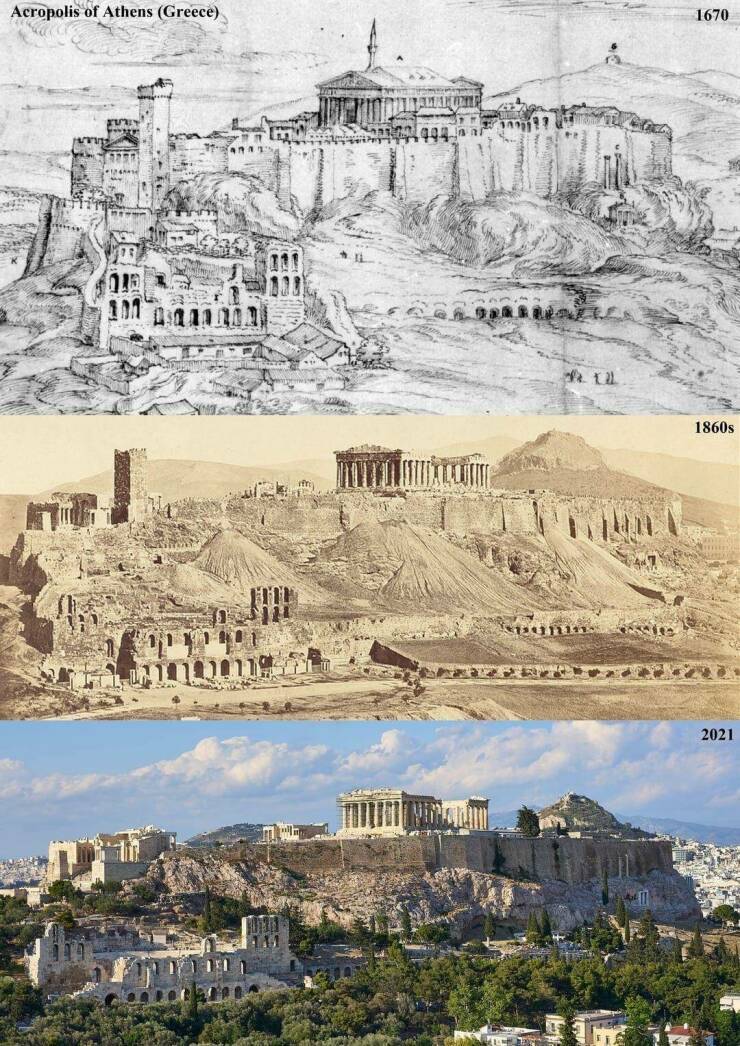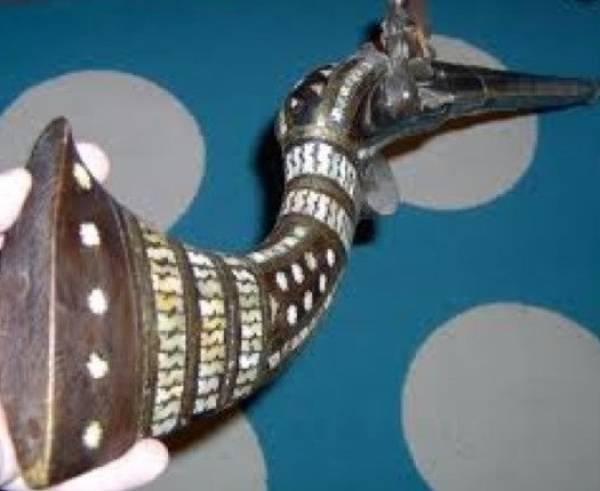The newest registered user is гераскинс
Our users have posted a total of 48082 messages in 7061 subjects

WORLD CLOCK
INFO VINE * The History of The Ancient Library of Alexandria *
Valley of the Sun Casual Club :: WORDS , FACTS , DATES , GAMES & TRIVIA & HISTORY :: INFORMATION VINE
 INFO VINE * The History of The Ancient Library of Alexandria *
INFO VINE * The History of The Ancient Library of Alexandria *

Photo Courtesy: [Leemage/Corbis/Getty Images]
The ancient Library of Alexandria (which was located in Egypt) has a rich history, and it was created as a temple for scholars to study, research, and better humankind. As important as this library was to societies all across the world, much of its history has been lost to time, wars, and religious conflicts. Alexander the Great founded the city of Alexandria, and without the city, the library never would have had a solid setting where people could better themselves and the arts (math, science, and language).
Alexander The Great Founded Alexandria
Alexander the Great was a ruler in Greece, and he started his attempt to explore and establish the world at around 334 BCE. Alexandria was found three years later by Rhacotis (an Egyptian settlement), which evolved into a quarter of the city. During Alexander's adventures, he had people (generals, scholars, friends) tell him extensively about all of the areas that they had seen, which is why he is significantly important to the development of geography.

Photo Courtesy: [GraphicaArtis/Archive Photos/Getty Images]
After his adventures in Alexandria, he traveled to numerous other places, with much of his documentation surviving after his passing. Alexander's reports inspired a scientific renaissance revolving around the study of Earth's natural geography and archaeology.
Why The Library Was Built
The Library of Alexandria was built because scholars wanted a giant, central place for their studies, versus scattered local and regional facilities. People started this library because they wanted to conserve their own heritage, traditions, and beliefs. Without the Greek philosophy and studies that were centered around a worldwide view, the idea of a universal library facility may have never come to mind.

Photo Courtesy: [William R. Shepherd/Wikimedia Commons/Public Domain]
Alexandria (after being founded) was perfect for the library, and the Greeks were greatly fascinated with the achievements in Alexandria (such as the construction of the library and the city itself). Moreover, countless Greek scholars traveled to Egypt to obtain knowledge from this city.
Demetrius of Phaleron
Demetrius of Phaleron (a scholar and politician from Athens) was essential to the development of the library after he became King Ptolemy I Soter's advisor; the king noticed Demetrius' intelligence, and in turn, gave him the power to develop the library and Mouseion (museum).

Photo Courtesy: [Pakeha/Wikimedia Commons/Public Domain]
Demetrius of Phalerum (shown in statue form above) and the king created and established the blueprints of the library, but historians say that it is unlikely that Demetrius built the library. Most Egyptologists agree that the library was most likely established during the era of Ptolemy II Philadelphus (Ptolemy I Soter's son).
Historians Have Had To Guess Some Of The History
The most difficult part for historians when it comes to the Great Library is that most of the information known about the library has been educationally inferred or pieced together by crumbling texts. With this, most of the history is still unknown and most historians have to make an educated guess based on surrounding factors about what happened all those centuries ago.

Photo Courtesy: [Universal History Archive/Universal Images Group/Getty Images]
People were too busy with their studies to write down every detail about ancient Egypt, and even if they did, it would be very unlikely that it would've survived due to political, environmental, and societal factors. Therefore, as much as we know about the Great Library, we will never know everything, and some historians will spend the rest of their lives trying to figure out what it was like in ancient Egypt at the Great Library.
Constructing The Library
After Alexander's death, the library started to be built in 295 BCE under the ruling of Ptolemy I Soter, who was the Pharoah that created the Ptolemaic dynasty in Egypt. Not much is known about the construction of the library since it was not highly documented, but the construction of the building was the start of a colossal renaissance in Alexandria.

Photo Courtesy: [Leemage/Corbis/Getty Images]
The library and all the accompanying buildings were centered at the most sophisticated part of Alexandria, which had a developed economy and trade network. Moreover, the complex that the library was in was considered the Royal or Brucheion Quarter of the city.
Papyrus Scrolls Were Collected First
Pictured below is a recreation of scrolls that were at the Library of Alexandria, for there were anywhere from 40,000 to 400,000 papyrus scrolls in this kingdom of knowledge. Most of the scrolls were made from papyrus (versus parchment) because Egypt had had a close trading connection with the resource.

Photo Courtesy: [Moritz Frankenberg/picture alliance/Getty Images]
The library had so many scrolls because the king was extremely advent on acquiring and gathering scrolls for the facility, in order to establish the city as a powerful icon, and of course to give resources to scholars that bettered humanity.
Gaining A Supply Of Books
Scrolls and books were gathered in several ways, and one of the most popular ways was to search incoming ships that wanted to dock in the harbor of Alexandria. Any books or literature found were transported to the library, where authorities would then determine if they were worthy of copying or paying the owner for. Interestingly enough, any book found this way was categorized as "from the ships".

Photo Courtesy: [Universal History Archive/Universal Images Group/Getty Images]
Ptolemy III also gained a supply of famous texts by grand poets such as Aeschylus, Sophocles, and Euripides, to which he had to persuade Athenian authorities in order to copy them. Thankfully, the king was successful, and the ancient texts were lent out and copied.
The First Librarian
The first librarian at the Library of Alexandria was Zenodotus of Ephesus (325-270 BCE), who was a scholar, grammarian, and literary critic. Zenodotus was mainly focused on establishing accurate texts for ancient Greek poetry.

Photo Courtesy: [Ad Meskens/Wikimedia Commons/Public Domain]
Historians know about the first librarian of the Great Library because of commentaries that were made about his preferred literature; Zenodotus is most remembered for the glossary (which consisted of alphabetized unusual words) that he created and his establishment of the alphabetical order system.
The Importance Of Apollonius of Rhodes
The second head librarian at the Library of Alexandria was Apollonius of Rhodes (295-215 BCE), who was taught by Callimachus and was born in Alexandria. Apollonius was made the librarian by Ptolemy II after Zenodotus died, and the king also hired him as a tutor for his son (Ptolemy III Euergetes).

Photo Courtesy: [Coyau/Wikimedia Commons/Public Domain]
Apollonius was famous for his poem, "Argonautica" (illustrated above), which was about the adventures of Jason and the Argonauts. This poem has completely survived, and it demonstrates Apollonius' wide range of knowledge on countless subjects; he was a scholar but due to this poem, he is mostly remembered as a poet.
Greek Literature Was Abundant
The library of Alexandria was founded because of Greek ideology, so it is to no surprise that the mass amount of material in the facility was written in Greek (a Greek papyrus scroll is shown below). Most scholars who studied and researched there were interested in Greek philosophy and science, so this also contributed to the amount of Greek reading material.

Photo Courtesy: [Xinhua/Muammar Awad/Getty Images]
Additionally, history shows that the scholars at the library based so much of their work off of Greek literature, that it is very possible that the entire corpus of Greek documentation and literature had found a home at this facility.
The Library And The Mouseion
The ancient Library of Alexandria was accompanied by the Mouseion (a museum), which was necessary for scholars so they could gather all the literature that they needed for their studies. With being close to a harbor and royal authorities, the library and museum became an elaborate research center.

Photo Courtesy: [Prisma/Universal Images Group/Getty Images]
After 50 years of collecting books and scrolls, the Great Library was running out of space for literature, and this inspired an expansion of the library and its facilities. Moreover, Ptolemy III had installed a branch library that allowed for more accessibility, seeing that it was a distance from the original library.
The Capital Of Knowledge
During the third and second centuries, Alexandria was the capital of knowledge thanks to the elaborate library and museum facilities that scholars had access to. Countless scholars, philosophers, mathematicians, and other people who prized education filled the library during these centuries, many who standardized library procedures (cataloging) and ancient texts like Homeric poems.

Photo Courtesy: [Culture Club/Archive Photos/Getty Images]
Some of the scholars who studied at the capital of knowledge included Apollonius of Rhodes, Eratosthenes of Cyrene (who calculated the Earth's circumference), Aristophanes of Byzantium, Aristarchus of Samothrace, and countless others.
The Egyptian Section Of The Library
Due to the factors that influenced the construction of the library, almost all of the literature in the Library of Alexandria was Greek in the beginning. As the mass of reading material increased, so did the span of languages and subjects in the collection.

Photo Courtesy: [Bettmann/Bettmann/Getty Images]
Moreover, Greek literature filled most of the library, and Egyptian literature was the second-largest section in the facility. It is noted that Ptolemy I (illustrated above) even accumulated documents, literature, and records from Egyptian priests to increase the value of scholars' educations.
There Was Universal Literature
The Library of Alexandria consisted of Greek and Egyptian literature (pictured below is some Egyptian literature), documents, and records, but it was also a host to worldwide writings; Berosus (a 3rd-century Chaldean priest) constructed a full history of Babylonia, and Hermippus had authored a novel on Iranian religion. Moreover, Buddhist writings and literature were easily accessible at the library.

Photo Courtesy: [Universal History Archive/Universal Images Group/Getty Images]
Scholars had additionally translated important Hebrew texts (the Septuagint) into the Greek language, which helped Judaism to flourish in Alexandria. The translations of these essential texts were only made possible by the extensive resources that the library had.
Defining The Classification Process
Galen (illustrated below) was a Greek philosopher, physician, and surgeon who defined library science at the Library of Alexandria. He had developed the classification process and library catalogs, for he recorded information on all the books such as the author, title, editor, origin, and length of the piece.

Photo Courtesy: [Pictures From History/Universal Images Group/Getty Images]
Galen was considered a scribe because of the type of work that he did at the Great Library, and he would get paid based on the number of lines he wrote and the quality of that writing. In addition, most scribes would get paid more if they worked on legal documents.
Subjects At The Library
Ancient Egyptian writing (like seen below) was common in the Great Library, along with Greek and other languages. Among the various languages were a countless number of subjects that all of the literature fell into, making the Library of Alexandria one of the first to create an official library system (with extreme classifications of the texts).

Photo Courtesy: [CM Dixon/Print Collector/Getty Images]
The Library of Alexandria had book subjects like rhetoric, tragedy, law, epic, comedy, history, lyric poetry, math, medicine, science, and an innumerable number of other topics. Between the Great Library and the daughter library, hundreds of thousands of scrolls were kept, and all these materials are what created such fantastic scholars at the facilities.
The Duty Of Book Buyers
The pharaohs in Egypt were obsessed with collecting literature for the library and they had gathered countless people to collect writing, and they would extensively fund policies that advocated for book collecting. Pharaohs would send out agents, their pockets stuffed with money, in order to buy books and texts of any kind at all.

Photo Courtesy: [Prisma/UIG/Getty Images]
Most kings wanted older copies of texts, for they assumed that they were not copied as much, which would mean that they were in the most original form that the author had produced. One of the most popular places that these book buyers traveled to was book fairs in Athens and Rhodes.
The Library Of Aristotle Served As Inspiration To The Library Of Alexandria
At the age of 50, Aristotle (illustrated below) had started his own library in Athens, seeing that he wanted to acquire a personal collection of literature. Aristotle was one of the greatest men to have ever lived, for he was extremely intelligent and was a pioneer for numerous scientific disciplines and philosophy.

Photo Courtesy: [Apic/Hulton Archive/Getty Images]
Aristotle's library was an inspiration to many, and some even say that the Library of Alexandria was based around the Library of Aristotle, seeing that he and his contributions were treasured in society. After his death from a disease in his digestive system, Aristotle's book collection was kept underground for over 150 years.
Eratosthenes of Cyrene
Eratosthenes of Cyrene was a profound scholar that had studied at this library, and he is known for calculating the circumference of the Earth (and he was only a few hundred kilometers off!). He wrote three volumes of literature about mathematics, geography, and map-making, although his work is only preserved by quotations from Strabo (a famous geographer).

Photo Courtesy: [Imagno/Hulton Archive/Getty Images]
Using the resources at the library (including records from Alexander the Great and Ptolemaic elephant-hunting trips in Eastern Africa), Eratosthenes made an entire map of the world. He was a renaissance man in all studies of geography and even developed it into a scientific study.
There Was A Community At The Library
Not only was the library a resource for literature, but it was also a home full of world-famous philosophers, scientists, researchers, poets, scholars, and more. Most of the people who officially studied here were given a salary, food, housing, and were exempt from taxes, and they often lived together communally.

Photo Courtesy: [Pictures From History/Universal Images Group/Getty Images]
Royalty gave these scholars (like Strabo, illustrated above), a rent-free life so that they could focus only on their studies, and there were anywhere from 30 to 50 men in the Library of Alexandria community. In the library, there were a number of classrooms where scholars were scheduled to teach the youth, and it is said that there was even a small zoo with exotic animals for studies that interested King Ptolemy II.
A Greek Library That Inspired The Ancient Library Of Alexandria
Another library was said to have inspired the Great Library, and this building was located in Greece in the 6th century BC. This library had combined literature from Greek and near eastern cultures, and this event had inspired people to eventually build the ancient Library of Alexandria.

Photo Courtesy: [Universal History Archive/Universal Images Group/Getty Images]
This 6th-century Greek library was the first prominent library at the time, and the ruler in Athens at the time, Peisistratos (illustrated above on the left), created the facility under his empire. The Great Library was largely based around Greek culture, so it is very possible that this library in Greece was a huge inspiration for those who wanted to build a library in Alexandria.
The Power Of The Library
The Library of Alexandria had a lot of power because it had no affiliation with any other institution; with this, scholars and anyone who studied there had complete freedom. Scholars had the freedom to write and study what they wanted, but one subject that was off-limits was the king. This was demonstrated after Sotades (a poet) had written a piece that made fun of King Ptolemy II (a bust of him pictured below) for marrying his sister; the king had sent him to prison, and after escaping, he was sentenced to a horrible death.

Photo Courtesy: [Hulton Archive/Hulton Archive/Getty Images]
The library also had power because they were religious centers, and Pharaohs would establish priests in the facilities to oversee things and establish a sense of authority in the buildings. Moreover, this library demonstrated significant authority because of its educational, political, scientific, and philosophical resources.
People Created Famous Work At The Ancient Library of Alexandria
The Library of Alexandria is known for hosting countless scholars, many of who made revolutionary contributions to the world. Callimachus (illustrated below) is an example of one of these scholars, for he was a poet who constructed a 120-book catalog of authors and their writings; it was called the Pinakes, and even though it did not survive long, enough of it had lasted so that those scholars were able to somewhat recreate it.

Photo Courtesy: [Sepia Times/Universal Images Group/Getty Images]
The catalog was created in alphabetical order based on the author's name; the poet had also included the author's father's name, origin, nicknames, and a list of all the pieces of work that they had written. Callimachus had documented some of the most famous writers, including Euripides and Sophocles, so some of their entries were tirelessly long.
Papyrus Was The Primary Material
Historians are still unsure of how many scrolls were in the library because of the rapid deterioration of the papyrus, but there were certainly tens of thousands of them in the library's prime time. Papyrus scrolls (an ancient one pictured below) were the main material that scholars used, and parchment was not popular due to trade preferences.

Photo Courtesy: [PACO SERINELLI/AFP/Getty Images]
Writing on parchment was created when Egyptians would not trade papyrus material with their rival library, the Library of Pergamum; as a result, the Library of Pergamum established parchment as a writing medium for their own uses.
The Library Was An Inspiration To The World
At the time of its construction, the Library of Alexandria was one of the best libraries in the world, yet as the Ptolemaic rule came to an end in Egypt, libraries were being built everywhere. When the Roman Period had begun, libraries started to appear in smaller towns and dozens of them were built in Rome as well; all of this was inspired by the history of the Library of Alexandria.

Photo Courtesy: [Roger Viollet/Roger Viollet Collection/Getty Images]
Numerous libraries copied the layout of the Great Library, and when the Romans took over, only an eastern section of the kingdom (which spoke Greek), mixed pagan and Christian literature together in their libraries. Despite this, Christian studies still had a habit of being more prominent than pagan studies at the facilities.
The Importance Of Copying
Interestingly enough, the only reason that parts of ancient literature still exist, is because ancient scholars were dedicated to copying all of the work. The elaborate library facility did not end up protecting the scrolls and books, but instead, it was those who took the time to be a scribe and copy the material, for either their own sake or for the future.

Photo Courtesy: [Universal History Archive/Universal Images Group/Getty Images]
People would become expert scribes and copy and recopy ancient texts for money, and pictured above are ancient Egyptian scribe palettes, which were used by the professionals to carry out their work when they wrote with reeds.
The Library's Importance As A Research Institution
Research is one of the main pillars of any institution, for without research there is no innovation or furthering on education. Hundreds of scholars researched at these facilities and created world-changing work, like Euclid illustrated below, who was the father of geometry.

Photo Courtesy: [Hulton Archive/Hulton Archive/Getty Images]
With a combination of thousands of scrolls, excellent teachers, and learning facilities, it is obvious to see how the Library of Alexandria goes down in history as inspiring and encouraging hundreds of educators and students who went on to change the world with their studies.
The Library And The Landscape Was A Cure For The Soul
Illustrated below is a landscape in Egypt, and this combined with the Library of Alexandria is why the scholars had called the area, “the place of the cure of the soul,” (which was engraved on the scroll shelves). Historians do not know the precise blueprints of the library, but it is quite possible that the building had a variety of scrolls, meeting rooms, classrooms, a dining hall, a reading room, and gardens.

Photo Courtesy: [De Agostini/De Agostini Editorial/Getty Images]
The city of Alexandria and the library that it had possessed sparked an immense inspiration for the idea of university campuses. Without the Great Library, we may have never known the concept of higher public education and living on campus!
Aristarchus of Samothrace
Aristarchus of Samothrace (216-145 BCE) was one of the most prominent scholars in all of Alexandria, and he is consistently quoted by other ancient scholars; he is known for his poems, prose, and long commentaries, and he worked in various areas, specifically with Homeric poems.

Photo Courtesy: [Universal History Archive/Universal Images Group/Getty Images]
With this, Aristarchus easily became the sixth librarian at the Library of Alexandria. As famous as he was, this scholar had to flee to Cyprus because he got involved with the Pharoah dynasties. When the king that Aristarchus supported was murdered, the new king prosecuted anyone who supported the previous ruler, which started the downfall of Alexandria.
Julius Caesar's Effect On The Library
Julius Caesar dappled in the affairs of the Great Library, for in 48 BCE, he had declared a Civil War and captured the city of Alexandria. In the attempt to block a fleet, Julius' soldiers had lit Egyptian ships on fire; the Alexandrian port was fairly close to the library, so some historians say that the building may have suffered some damage from the political war.

Photo Courtesy: [Bettmann/Bettmann/Getty Images]
The damage that Caesar caused is disputed by many historians, and if the facilities were burned, it's likely that they were quickly restored. It is also possible that a warehouse with scrolls may have suffered damage from the fire, but regardless, the library became lesser-known after this event.
The Effect Of An Unstable Ruler
Alexandria and the Ptolemaic dynasty had flourished for centuries, yet all remarkable things must end. During the middle of the second century BCE and on, the dynasty and authority in Egypt had started to grow shaky and the foundation had begun to crumble.

Photo Courtesy: [Bildagentur-online/Universal Images Group/Getty Images]
When the Ptolemaic dynasty got extremely involved with economic and political issues, they could not dedicate as much time towards the library and its facilities as the previous Pharaohs had. With this, the library had started to decline during the last ruler of Ptolemaic Egypt, Cleopatra (illustrated above).
A Shift At The Start Of The First Century
By the start of the first century, most of the ancient literature (like poems) had acquired extensive commentaries by Alexandrian scholars, so people were running out of things to do. No original literature (like writings from Socrates, illustrated below) was left for scholars to analyze and annotate, so the Great Library had begun to evolve.

Photo Courtesy: [Universal History Archive/UIG/Getty Images]
Some scholars spent their time reanalyzing commentaries made centuries previous by scholars in Alexandria. Countless people did not want to rework the same material, so they started to write commentaries on (at the time) more recent authors like Apollonius of Rhodes and Callimachus. Moreover, with little original text left to comment on, scholars had started to travel and spread the ways of Alexandrian scholars.
Didymus Chalcenterus
Didymus Chalcenterus produced around 4,000 books in his lifetime, and his work proves to historians that the library was still standing and supporting scholars in 48 BCE. Didymus was known for his commentaries, and his epithet (Chalcenterus) meant "bronze guts".

Photo Courtesy: [Fadel Dawod/NurPhoto/Getty Images]
Without the sources from the library, the work Didymus produced would have been unimaginable, and he went on to produce work that helped and inspired generations. Moreover, he was nicknamed the book-forgetter, for he often couldn't recall pieces that he had written.
The Library's Role During The Roman Principate
During the Roman Principate (27 BC-284 AD), an addition was built onto the library, but other than that, the Library of Alexandria generally declined in popularity and status during the Roman rule. During the Roman Empire, status at the library was no longer based on education, but instead on military, government, and athletic status.

Photo Courtesy: [Bildagentur-online/Universal Images Group/Getty Images]
Illustrated above is the founder of the Roman Principate (the first period of the Roman Empire), Augustus, and famous lyricist poets of that time. The status of the library drastically changed as Roman influence continued in this area, and Alexandria was never the same afterward.
The Only Known Librarian During The Roman Period
Tiberius Claudius Balbilus was an administrator, politician, and military officer who was the only head librarian of the Great Library during the rule of the Roman Empire. Overall, Tiberius was not a scholar and did not compare to the past librarians.

Photo Courtesy: [Jastrow/Wikimedia Commons/Public Domain]
The library declined even more under this librarian, for all responsibilities were abandoned, for scholars were no longer expected to tutor, research, or even live in the city. During this time, almost every member of the library and museum facility had no qualifications to be in such a position.
Other Libraries Had Affected The Ancient Library Of Alexandria
As the Great Library started to decline, mainly from political conflict, other libraries instigated its further downfall as they increased their reputation; the Great Library was no longer the greatest as new libraries were built and older facilities were renovated in order to provide library resources across the Mediterranean.

Photo Courtesy: [Stefano Bianchetti/Corbis/Getty Images]
The Library of Alexandria had also contributed to the growth of other libraries as scrolls were moved to different buildings in order to stock facilities. By the end of the first century (AD), there were libraries all across Alexandria and the surrounding areas.
The Daughter Library
The Library of Alexandria had a daughter library, the Serapeum, which was built for extra storage and soon transformed into an exquisite facility. This library withstood a significant amount of time, for pagans had used it and it was a well-working temple. This library, like the original, also contained classrooms for scholars to tutor people in.

Photo Courtesy: [Bildagentur-online/Universal Images Group/Getty Images]
Most scholars who worked at this library studied specialized religions and rituals, and oftentimes considered themselves philosophers. Educated people would come from around the world to teach students at this library, including Damascius who was knowledgeable in divine worship and ancient religious studies.
The Downfall Of The Serapeum
As phenomenal as the daughter library was, it came crashing down when Theodosius I (a Roman Christian emperor, illustrated below) came into power and began to prosecute pagans and destroy pagan culture. This emperor had demanded that all pagan structures be eliminated and that the daughter library be turned into a church.

Photo Courtesy: [Universal History Archive/Universal Images Group/Getty Images]
Chrisitan workers in the city did as the emperor ordered them to, and while destroying the pagan architecture, they discovered the ruins of an old worship temple (a Mithraeum). The workers gave some of the ruins to the ruler, and he in turn mocked and made fun of the pagan culture and their artifacts.
A King Had Created Violence At The Serapeum
Violence was created at the daughter library after the king's actions, for pagans were extremely sensitive to the destruction of artifacts and symbols of cultural heritage. So, when the king paraded pagan artifacts around the city and ridiculed them, students and teachers at the Serapeum started a mob and attacked and murdered countless Christians.

Photo Courtesy: [Bildagentur-online/Universal Images Group/Getty Images]
As a result of this, Christians went forth with destroying the daughter library, and only parts remained after this point in history. Luckily, at the time of the destruction, there were not as many reading resources in the building, so there was not too much damage done to the ancient literature.
The Man Of The Mouseion
Theon of Alexandria (335-405 AD) was considered the "man of the Mouseion" because he was the headteacher at the museum. The library and museum were often associated with one another, but generally, they did not have much in common. Theon had run an excellent school that was fancy, conservative, exclusive, and highly prized.

Photo Courtesy: [Unknown Author/Wikimedia Commons/Public Domain]
Theon enjoyed teaching Plotinian Neoplatonism, which was not the common teaching at the time, yet he was extremely intelligent. This scholar had had a daughter as well, Hypatia, who was like her father and even took his place at this school when he died.
Philosophy That The Ancient Library Had Encouraged
Throughout the centuries, the Great Library had encouraged numerous philosophies, although the two that withstood time even after the library and its facilities were gone were paganism and Neoplatonism. For centuries, these two ideologies were practiced across Alexandria and the eastern Mediterranean thanks to Hypatia (an ancient mathematician and philosopher illustrated below).

Photo Courtesy: [Photo12/Universal Images Group/Getty Images]
The Christians that destroyed the daughter library tolerated and even accepted Hypatia despite her philosophies, although when she got involved in a political situation, she was killed by a group of Christians; she had no one to take her place following her death, so her school that she took over from her father was lost to history.
Medical Science In The Library
Many scientific disciplines were developed at this library by intelligent scholars, including natural science, geography, math, and even medical science. After a few years of development, the Great Library had even formed a medical school where scientists could practice their hypotheses.

Photo Courtesy: [DeAgostini/DeAgostini Editorial/Getty Images]
Medical science, like the art of birth (illustrated above in ancient Egypt), and surgeries, among other subjects, were studied at the library's medical school; although controversial, human bodies were also dissected in these facilities, for scholars wanted to develop the medical sciences to help people live a long, healthy life (and they did indeed achieve many advancements in this field).
The Library Is A World Mystery And Miracle
As amazing as the Library of Alexandria was and all the benefits that it provided, historians still do not know much about it, which in itself is a mystery and a miracle; the library produced and developed some of the most famous scholars of all time, who defined our world, yet not much information has survived to tell a detailed history of the library.

Photo Courtesy: [DeAgostini/DeAgostini Editorial/Getty Images]
Illustrated above are ruins of the library along the coast, yet historians still can't place exactly where the library was and the precise layout and design of the building. Moreover, records fail to show the details of all the literature at the facility, and everyone who worked there, yet the Great Library is one of the most essential parts of human history.
The Library's Last Hoorah
When the Roman Empire had taken control of Alexandria, authorities took little to no interest in the development or even continuation of the library and its facilities, and scholars were less famous than the ones who had studied there before them. Moreover, unfortunately, by the 2nd century AD, Alexandria and Alexandrian scholarship were becoming obsolete because of the Romans (illustrated below).

Photo Courtesy: [Icas94/De Agostini Picture Library/Getty Images]
During the Roman Period, the word "Alexandrian" was no longer a compliment, for instead of being referred to as editing texts and writing commentaries, the people who did this type of work were considered unoriginal and monotonous. Additionally, the Library of Alexandria and its surrounding buildings became transparent during the last half of the 3rd century AD, and the last reference to scholars uniting under the mission of the Mouseion was in the 260s.
The Library's Destruction
Throughout history, there have been two main accounts of destruction at the Great Library. One of these was the Civil War that Julius Caesar had started, and the other event occurred in 272 AD. When the emperor, Aurelian (illustrated below), had attempted to capture Alexandria from opposing forces, they had destroyed the Library of Alexandria in the process.

Photo Courtesy: [Bildagentur-online/Universal Images Group/Getty Images]
Historians are almost certain that the library and museum were destroyed at this time (if they were even still standing at that point), and that they were not rebuilt after the attack. If parts of the building had survived this battle, then they would have been later demolished under Emperor Diocletian in 297.
The History Of The Scholarly Decline Of The Library
The decline of the library had started when Aristarchus of Samothrace fled to Cyprus after Ptolemy VIII Physcon had started prosecuting Alexandrian scholars. After this previous head librarian had caused this uproar, almost all of the Alexandrian scholars (like Dionysius Thrax and Apollodorus of Athens, to name a few) fled to far-off locations to continue their scholarships and teachings.

Photo Courtesy: [Icas94/De Agostini Picture Library/Getty Images]
The scholarly decline also occurred when people attempted to capture Alexandria (like Julius Caesar), and when Strabo (a famous geographer), reported that there were fewer scholars and resources available at the Great Library at that time (20 BC).
The Overall Decline Of The Facility
With the decline of the scholarly status of the library came the deterioration of the building itself, for the Romans had no interest in funding or supporting the structure in any way. Moreover, by the 260s, the membership at the library was basically nonexistent.

Photo Courtesy: [German Wikipedia/Wikimedia Commons/Public Domain]
By the year 391, the daughter library was completely destroyed under the order of a Christan Pope, although luckily at the time of its destruction, it was primarily used as a communal area for Neoplatonist (who followed the ways of Iamblicus, who is illustrated above); few scrolls were lost since they were stored at other facilities at the time.
The Library Encouraged The Study Of Grammar
Without the Great Library, humanity may have never developed the science of grammar; Dionysius Thrax (170-90 BC) was the author of the first Greek grammar book, and he had his own school in Rhodes as well (a Greek island).

Photo Courtesy: [Davidson/Wikimedia Commons/Public Domain]
Thrax's Greek grammar book was so revolutionary and popular, that it was used all the way up until the 12th century. His book created a grammar guideline for Greek (which inspired other grammar books for additional languages), and the Romans had based their grammar on the text too.
Alexandrian Scholarship
Without Ptolemy I (illustrated below), the Great Library and Alexandrian scholarship may have never existed, which would have severely altered the ways of the world. The Alexandrian scholarship was around since the start of the library, and it started to spread to Rome and around the world in the first century BC.

Photo Courtesy: [Archiv Gerstenberg/ullstein bild/Getty Images]
Tyrannion of Amisus (100-25 BC), a student of the great grammar genius Dionysius Thrax, spread the ways of Alexandrian scholarship to Rome, which consisted of developed cultural arts and sciences for oneself and the rest of the world. Thanks to him and countless others, Alexandrian scholarship was not completely lost once the ancient Library of Alexandria was destroyed.
 Similar topics
Similar topics» INFO VINE * The History of Prince *
» INFO VINE * The History of The Pentagon *
» INFO VINE * The History of Medicine *
» INFO VINE * The History of Comic-Con *
Valley of the Sun Casual Club :: WORDS , FACTS , DATES , GAMES & TRIVIA & HISTORY :: INFORMATION VINE

 Events
Events















































































» YOUTUBE SHORTS ANIMALS ONLY...5
» YOUTUBE SHORTS OFF THE WALL...23
» GIRLS FROM MARVEL
» GIRLS IN AND OUT OF UNIFORM...15
» FAILS STILLS...7
» ASIAN HOTTIES
» Public Citizen : * latest on constitutional amendment *
» NBC OLYMPICS * CATCH UP *
» TRIVIA SCOOP QIUZ * Which U.S. state's name means "mountain" in Spanish? *
» TRIVIA SCOOP ANSWER PAGE
» HISTORY QUIZ * DID THE BEATLES RELEASE THEIR FINAL ALBUM IN THE 70's ? *
» HISTORY QUIZ ANSWER PAGE
» AXIOS * Two New Sports Have Been Added to the 2028 Olympics *
» US TRIVIA QUIZ * What was the nickname given to the Ford Model T? *